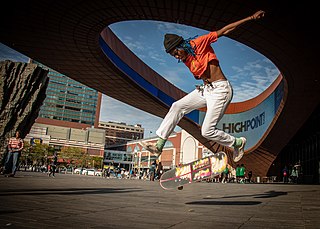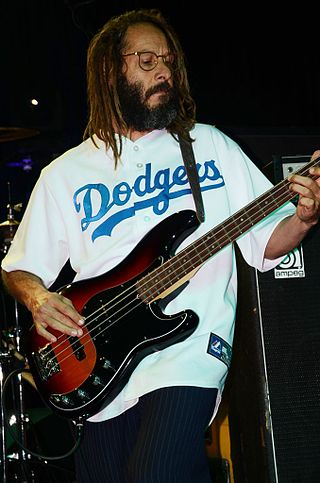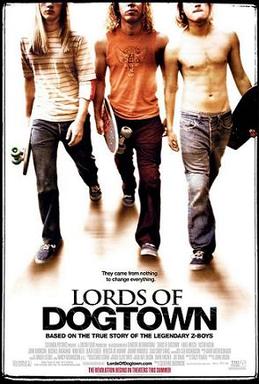
Skateboarding is an action sport that involves riding and performing tricks using a skateboard, as well as a recreational activity, an art form, an entertainment industry job, and a method of transportation. Originating in the United States, skateboarding has been shaped and influenced by many skateboarders throughout the years. A 2009 report found that the skateboarding market is worth an estimated $4.8 billion in annual revenue, with 11.08 million active skateboarders in the world. In 2016, it was announced that skateboarding would be represented at the 2020 Summer Olympics in Tokyo, for both male and female teams.
Boardsports are active outdoor sports that are played with some sort of board as the primary equipment. These sports take place on a variety of terrains, from paved flat-ground and snow-covered hills to water and air. Most boardsports are considered action sports or extreme sports, and thus often appeal to youth. Some board sports were marginalized in the past. However, many board sports are gaining mainstream recognition, and with this recognition, they have enjoyed wider broadcast, sponsorship and inclusion in institutional sporting events, including the Olympic Games.

Dogtown and Z-Boys is a 2001 documentary film produced by Agi Orsi and directed by Stacy Peralta. The documentary explores the pioneering of the Zephyr skateboard team in the 1970s and the evolving sport of skateboarding. Using a mix of film of the Zephyr skateboard team (Z-Boys) shot in the 1970s by Craig Stecyk, along with contemporary interviews, the documentary tells the story of a group of teenage surfer/skateboarders and their influence on the history of skateboarding culture.

Stacy Douglas Peralta is an American film director and entrepreneur. He was previously a professional skateboarder and surfer with the Zephyr Competition Team, also known as the Z-Boys, from Venice, California.

Tony Alva is an American skateboarder, entrepreneur, and musician. He was a pioneer of vertical skateboarding and one of the original members of the Zephyr Competition Skateboarding Team, also known as the Z-Boys. The Transworld Skateboarding Magazine ranked him eighth in its list of the "30 Most Influential skateboarders" of all time.

Jay J. Adams was an American skateboarder. As a teen, he was the youngest member of the Zephyr Competition Skateboarding Team (Z-Boys). His spontaneous freestyle skateboarding style, inspired by ocean surfing, helped innovate and popularize modern skateboarding. His aggressive vertical tricks make him one of skateboarding's most influential stylists.
The Zephyr Competition Team were a group of American skateboarders in the mid-1970s from Santa Monica and Venice, California. Originally consisting of 12 members, the Z-boys were originally sponsored by the Jeff Ho Surfboards and Zephyr Productions surf and skate shop. Their innovative surfing-based style and aerial moves formed the foundations of contemporary vert and transition skateboarding. The story of the Z-Boys and the Zephyr shop have been popularized in feature films such as Lords of Dogtown and Dogtown and Z-Boys.

Lords of Dogtown is a 2005 American biographical drama film that captures the rise of skateboarding culture in 1970s Santa Monica and Venice, California. Directed by Catherine Hardwicke and written by Stacy Peralta, a key figure in the skateboarding community, the film chronicles the lives of the Z-Boys, a group of young skateboarders who revolutionized the sport with their aggressive style and innovative tricks. The story focuses on the lives of three of these skateboarders: Tony Alva, Stacy Peralta, and Jay Adams, as they navigate fame, rivalry, and personal challenges. The film explores the impact of commercialization on the sport and the lives of its practitioners. Despite mixed reviews and underperforming at the box office, it has gained a cult following and is recognized for its authentic portrayal of skateboarding culture and history.
Richard Lawrence "Larry" Stevenson was the inventor of the kicktail, the bent-upwards end of a skateboard, which made most of today's skateboarding tricks possible and essentially revolutionized the sport.
Craig R. Stecyk III is an American artist, writer, photojournalist, and filmmaker who has documented and influenced the surf, skate, and snowboarding cultures.

Riding Giants is a 2004 documentary film produced by Agi Orsi and directed and narrated by Stacy Peralta, a famous skater/surfer. The movie traces the origins of surfing and specifically focuses on the art of big wave riding. Some of the featured surfers are Greg Noll, Laird Hamilton, and Jeff Clark, and surfing pioneers such as Mickey Munoz.
Warren Edward Bolster was an American skateboard photographer during the mid-1970s rebirth of skateboarding.
A freestyle skateboarding trick is a trick performed with a skateboard while freestyle skateboarding. Some of these tricks are done in a stationary position, unlike many other skateboarding tricks. The keys to a good freestyle contest run are variety, difficulty, fluidity, and creativity. This is an incomplete list, which includes most notable tricks.
Peggy E. Oki is an American skateboarder, surfer, artist, and environmental activist. She was an original member of the Z-Boys and competed with the Zephyr Competition Team in the 1970s. She was the only female member of the Z-Boys.
Skip Engblom is an American entrepreneur and one of the co-founders of the Jeff Ho Surfboards and Zephyr Productions Surf Shop in Santa Monica, California. He also helped to create the Zephyr Surf Team and the Zephyr Competition Team, a.k.a. Z-Boys. Engblom was never a remarkable skateboarder himself but was a big influence to the Zephyr team.
Russell Wayne Howell is a professional skateboarder. While working towards his degree in physical education, Howell competed and won many freestyle skateboarding competitions throughout his skating career.
California Free Former was the world's largest skateboard manufacturer during the 1970s. From 1970 to 1981, it was owned by Rick Smith of ALS Industries with a business partner. They also held several licenses from Walt Disney, manufacturing roller skates and other Disney brand consumer products.
Juice Magazine, founded in 1993 in Wilmington, North Carolina, is a skateboarding, surfing and music publication, edited, owned and published by Terri Craft. It includes interviews by skate editor, Jim Murphy, and features editors: Steve Olson, Jay Adams, Dave Duncan, Christian Hosoi, Jim O'Mahoney, and surf editors Jeff Ho, Herbie Fletcher and Dibi Fletcher. The staff includes Terri Craft, editor and Dan Levy, assistant editor. Other interviewers include Jason Jessee, Jeff Ament, Chuck Dukowski, Bill Danforth and Chris Mearkle. There are currently 76 issues of the magazine. Juice Magazine headquarters is located in the birthplace of modern-day skateboarding, Venice, California.

Allen Sarlo is an American surfer, most prominently known as one of the original members of the Z-Boys surf and skateboarding team. Surfing Magazine recognized him as the first to "kill" a wave. The aggressive and slashing style of surfing he pioneered during the 1970's earned him the nickname "Wave Killer". He is considered by many as "The King of Malibu".
Reginald Barnes Jr., aka Reggie Barnes is a retired American professional freestyle skateboarder and the founder/CEO of Eastern Skateboard Supply, the largest skateboard wholesale company in North America. Known as a "virtuoso" teen amateur, Barnes skated professionally from 1980 to 1991, with the Pepsi-Cola Pro Skateboard Team, Walker Skateboards, and Dogtown Skateboards. By 1986, Barnes was one of the top five American freestyle skateboarders in the United States and was featured demonstrator at Expo 86, the world's fair held in Vancouver, Canada. He placed third in freestyle at the World Cup in 1987.







